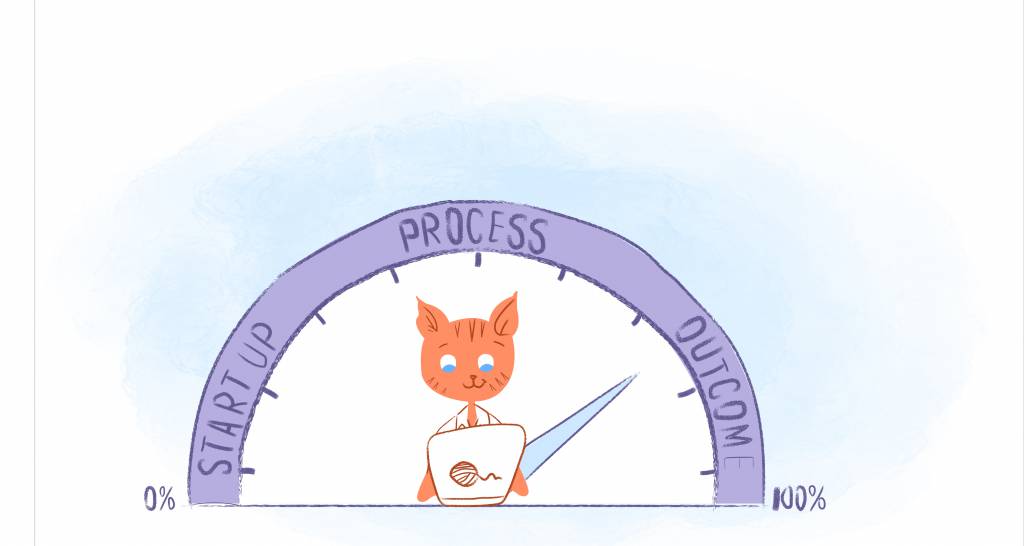

In a world designed to distract you, the ability to focus has become an increasingly valuable skill. However, this doesn’t seem to be the case with high performers. How can this be? Well, whether they are elite athletes or Fortune 500 CEOs, top performers don’t possess supernatural willpower. By understanding the science of focus, they can create environments and habits that allow them to maintain it.
This is what they know — and how you can use it too.
Focus Is a Finite Resource
First, let’s discuss your brain’s limited mental energy, called cognitive bandwidth. Whenever you switch tasks, you leave a bit of your focus behind, known as attention residue.
Those who perform at the top minimize cognitive leakage. For example, they know multitasking isn’t productive. Instead, it’s self-destructive. A Stanford study reveals that people who multitask regularly perform worse on memory and attention tests.
What you can do;
- Follow the Pomodoro technique (25 minutes of intense work, followed by five minutes of rest).
- Disable app notifications. Each and every one of them.
- Schedule a “focus block” in your calendar each day. Or, take it up a notch and schedule entire focus days. You only take on deep work, no phone calls or emails.
Environment Is Everything
Want to know a secret? High performers don’t rely on willpower. Instead, they engineer their surroundings to make focus the default.
High-achieving individuals use environmental design to reduce friction, whether they are in Silicon Valley or Olympic training centers. This could mean noise-canceling headphones, minimal workspaces, or a dedicated focus room. Regardless of the distraction, the goal is always the same: eliminate it before it occurs.
In the words of W. Clement Stone, “You are a product of your environment. So choose the environment that will best develop you toward your objective. Analyze your life in terms of its environment. Are the things around you helping you toward success – or are they holding you back?”
What you can do;
- Put your phone away while you are working.
- Keep your workspace tidy and predictable.
- Block tempting websites with website blockers like Freedom and Cold Turkey.
- Surround yourself with other high performers. High-performers at a large technology firm were found to boost coworkers’ performance by 15 percent when they were within a 25-foot radius.
They Understand the Brain’s Focus Cycles
As opposed to machines, your brain works in cycles. An average adult can maintain high-quality focus for about 90 minutes before their performance declines sharply.
High performers use this to their advantage. Instead of working until burnout, they take strategic breaks to recharge their attention span. This is tied to the ultradian rhythm, a natural cycle of alertness and fatigue throughout the day.
What you can do;
- Divide your day into 90-minute work periods, followed by 15–20 minute rest periods.
- Do not schedule back-to-back meetings. Even a five-minute break can prevent mental fatigue.
- Adjust your schedule to accommodate your most productive time of day (your “chronotype”).
Focus Thrives on Clarity and Purpose
Have you ever had trouble focusing on a vague task? There’s a reason for this: the brain dislikes ambiguity. High performers become more effective when they gain clarity on what they are doing and why it matters.
Research shows that dopamine, the feel-good neurotransmitter that enhances motivation and focus, is released when a task is clearly defined and intrinsically rewarding. For this reason, purpose-driven goals perform better than vague ambitions, no matter what.
What you can do;
- Take small, actionable steps toward achieving big goals.
- Each morning, write down your top three priorities.
- Connect a task to a larger mission or outcome to remind yourself why you are doing it.
They Train Their Minds Like Muscles
As with any skill, focus can be improved through practice
It is common for top performers to incorporate mental training into their routines. Among the exercises you might do are meditation, visualization, and deliberate focus. It has been shown that just 10 minutes of meditation a day can improve attention span and emotional regulation significantly.
It is common for athletes to visualize their performances. During chaos, entrepreneurs practice mindfulness to stay grounded. In other words, these aren’t “soft” strategies; they’re scientifically proven strategies.
What you can do;
- Use guided meditation apps like Headspace or Calm.
- Perform one daily activity (such as eating or walking) without distractions.
- Reflect on your work. What went well, what distracted you, what could you improve?
They Protect Their Energy, Not Just Their Time
Most people schedule their days according to the clock. High performers, on the other hand, schedule by energy levels.
They are aware that not all hours are created equal. As such, it’s more important to protect peak mental states when they’re at their most creative or analytical than to be available 24/7.
Additionally, they prioritize sleep, exercise, and nutrition as focus multipliers. If you are deprived of sleep even for one hour, it can dramatically decrease your cognitive performance. Consuming junk food spikes insulin levels and makes it difficult to concentrate. And exercise? Not only is it good for your body, but it also improves brain function and mental clarity.
What you can do;
- Identify your “focus windows” (usually in the early morning or late evening).
- Sleep between 7 and 8 hours a night — no exceptions.
- Get moving every day, even if it’s just a brisk 20-minute walk
They Say “No” a Lot More Than You Think
What is one of the most underrated focus strategies? Saying no.
A high performer’s calendar does not get hijacked by urgency. They guard their attention as though it were gold, because it is. As Warren Buffett once said, “The difference between successful people and very successful people is that very successful people say ‘no’ to almost everything.”
However, this doesn’t mean being rude or unreachable. Instead, it’s about knowing your priorities and protecting them.
What you can do;
- Assess your weekly commitments. Eliminate one unnecessary task or meeting.
- Follow the “Hell Yes or No” rule: if it’s not an enthusiastic yes, it’s a no.
- Find ways to delegate or defer non-core tasks.
Final Thoughts: Make Focus a Habit, Not a Sprint
You can’t fix focus with a one-time fix. It’s a way of working. After all, high performers don’t have more hours in the day than you do. It’s just that they use them better. Their actions are aligned with purpose, an understanding of how the brain works, and a distraction-free environment that helps them focus.
The best part? You don’t have to overhaul your life overnight. Choose one or two strategies to begin with, test them, and refine them along the way.
As soon as you control your focus, you will have control over your results.
FAQs
What exactly is focus? Is it just about paying attention?
While attention is a core component of focus, it is more nuanced. It involves concentrating your mental energy on a specific thought, stimulus, or task while actively ignoring internal distractions (wandering thoughts, emotions) and external (noise, notifications).
Often, it involves;
- Selective attention. When competing stimuli are present, one must choose what to focus on.
- Sustained attention. Being able to sustain that focus over time.
- Divided attention (with caution). The ability to switch focus between multiple tasks (though this can often result in a loss of depth and efficiency).
- Executive control. Attention, working memory, and task switching are cognitive processes.
In other words, while paying attention is the foundation, focus is how that attention is directed and sustained.
Why is it so hard to focus in today’s world?
As a result of our modern environment, we are practically engineered to lose focus. There are several factors contributing to this challenge;
- Digital overload. With constant notifications and social media feeds, our brains are trained to find instant gratification and short bursts of attention because of this dopamine-driven cycle.
- Information density. In the age of information overload, it is difficult to filter out the noise due to information saturation.
- Multitasking. We live in a multitasking culture. Juggling multiple tasks simultaneously fragments our attention, making it challenging to focus intensely on one task at a time.
- Stress and anxiety. In addition to consuming mental resources, worry and stress also reduce cognitive capacity, making it harder to concentrate.
- Lack of dedicated focus time. We often don’t intentionally carve out time for focused work or mindful presence.
Is there a scientific basis for why distractions are so disruptive?
Absolutely. Whenever we are interrupted, our brains experience a “switching cost.” This means we must expend extra time and mental energy to;
- Disengage. We must shift our attention elsewhere rather than concentrating on the primary task.
- Engage. Take time to process the distraction.
- Re-engage. Rebuild our mental context by returning to the original task.
As a result, these switches are cognitively demanding and increase errors, reduce efficiency, and fatigue the mind. Several studies have shown that even brief interruptions can negatively impact performance on complex tasks.
What are some practical strategies to improve my focus right now?
You can implement these actionable techniques immediately.
- Eliminate obvious distractions. Find a quiet workspace, turn off notifications, and close unnecessary tabs.
- The power of single-tasking. Make a conscious effort to complete one task at a time. Until the current task is complete (or you take a scheduled break), avoid checking emails or switching to other activities.
- Mindful breathing. If your mind wanders, take a few deep breaths and focus on breathing. By doing this, you can anchor yourself in the present moment.
- Set clear intentions. Defining your goals before starting a task is essential. By focusing on this, you will be able to maintain your focus.
- Break down large tasks. It can be challenging to focus when you have a lot of tasks to complete. Break them down into smaller, more manageable steps.
- Time blocking. Set aside specific blocks of time in your day for focused work. Treat these blocks as important appointments.
How can I cultivate deeper, sustained focus over time?
A consistent effort and the cultivation of specific habits are necessary to develop long-term focus;
- Practice mindfulness meditation. Observing your thoughts without judgment strengthens your attentional control when you meditate regularly.
- Prioritize sleep. Appropriate sleep is crucial for optimal cognitive function, including focus and concentration.
- Manage stress. Exercise, leisure time in nature, and relaxing hobbies can be healthy ways to manage stress.
- Optimize your environment. Focus on creating a workspace that minimizes distractions.
- Regular breaks. Short, regular breaks can actually improve sustained focus by preventing mental fatigue.
- Train your attention span. Concentrate on increasing the length of your focused work sessions. Begin with shorter intervals and gradually lengthen them.
- Reduce digital clutter. Be conscious of how you use technology and what notifications you allow. Also, maintain a clutter-free digital environment.
Image Credit: nappy; Pexels











John Rampton
John’s goal in life is to make people’s lives much more productive. Upping productivity allows us to spend more time doing the things we enjoy most. John was recently recognized by Entrepreneur Magazine as being one of the top marketers in the World. John is co-founder of Calendar.